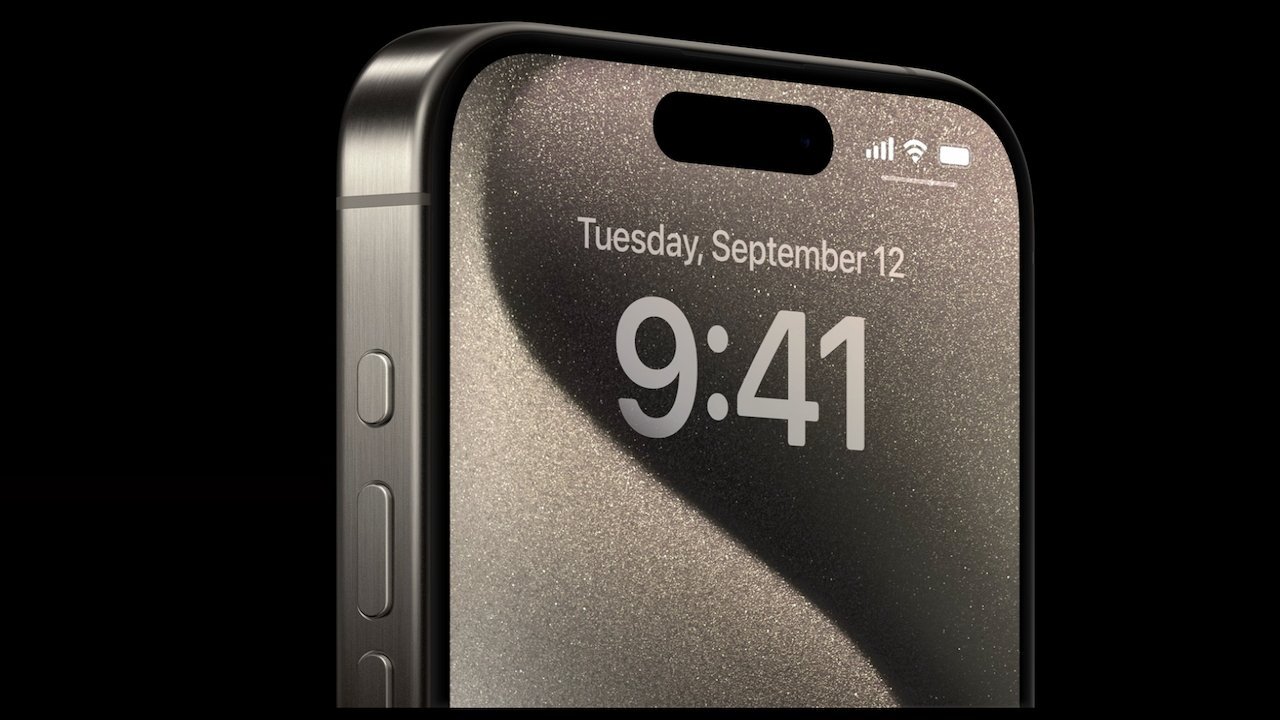Global iPhone shipments are rising, but Apple is losing share to Chinese rivals
Both Apple and Samsung have increased their sales in Q4 2024 compared to a year earlier, but rising competition from China's Xiaomi and others mean the iPhone's market share has dropped.

Apple's iPhone 15 Pro
Apple appears to be turning around its problems in China, despite the increased competition from local brands, it was sales in that country that helped boost the iPhone's fortunes in Q2 2024. According to the Wall Street Journal, stronger performance in China led quarterly shipments of the iPhone to rise 1.5% year over year, to 45.2 million.
Samsung also saw growth of 0.7% YoY, bringing it to 53.9 million units. Reportedly, while Apple's growth is ascribed to a recovering Chinese market, Samsung's is said to be because of its focus on AI and its flagship models.
With both Apple and Samsung, however, the growth comes as the overall smartphone market has also grown. Despite their increased shipment figures, both firms saw their overall market share drop.
Apple's share fell from 16.6% in Q2 2023 to 15.8% in Q2 2024. Over the same period, Samsung's share fell from 20% to 18.9%.
In comparison, Chinese firm Xiaomi increased its market share from 12.4% to 14.8% over the same period, while Vivo rose from 7.9% to 9.1%.
That means Xiaomi sold 42.3 million units, only slightly behind Apple. Vivo sold 25.9 million.
Significantly, neither Apple nor Samsung tend to launch new phones during the second quarter. Then Apple will be leaning on its Apple Intelligence feature for the forthcoming iPhone 16 range and expects to see a significant boost in sales.
The likelihood of AI features boosting smartphone sales has also now been backed up by chip manufacturer TSMC. While its second-quarter results will not be announced until July 17, 2024, Reuters says that analysts are predicting a 30% rise in profits because of demand for AI processors.
Read on AppleInsider

Comments
The so called 'garbage' are often anything but and serve the low to mid-end market where people can't afford to spend too much.
The rest of the market is not Apple exclusive and there are plenty of Chinese premium and ultra premium models to choose from which offer more than Apple, hence Apple's dip in marketshare overall. Also worth noting is that Chinese iPhones have been seeing discounting since launch. The more time passes, the higher the discounts.
Definitely not 'garbage' and if you want a folding or flip phone, Apple isn't even in that game. Neither is it in the 'smart car' market so if you're looking for that you only have a very limited Car Play option while others offer the whole integration feast.
Sales are already tough in China as seen by almost continuous discounting.
Car Play as an 'add on' just adds to the problem as competitors offer deeply integrated solutions.
There are a ton of links like this, due in fact to China's showing economy that looks to have been driven into a ditch by Xi. So when you talk about discounts, you would be better off noting that China's industry looks to be deflationary, so everyone is discounting, not just Apple.
Yet Apple does in fact continue to garner something over 80% of worldwide smartphone profits. Selling lots of models, which is common for China's OEM's, isn't a path to profitability, yet you diss Apple for not yet having added foldables to its offering. Pretty much an indication that foldables are a long way from mainstream profitability.
Deflation is a threat in China;
https://www.youtube.com/watch?v=azW8vygS_mU
China loses even more foreign investment;
https://www.youtube.com/watch?v=5vWCzfX9MI4
Look, phone sales are up across the board, according to the report.
Obviously, the general Chinese economy is not of much importance overall in terms of smartphone sales. The primary indicator for the health of the general economy is car sales, not smartphone sales.
Where it is more important is for Apple because it offers nowhere near the breadth of product pricing as the competition.
That leaves it with just one big card to play: discounting.
Now, discounting among the competition is irrelevant because it is not new. It is part of Industry. Always has been.
Where it is new is for Apple which is famously discount-shy and tends to use indirect discounting (via trade ins etc).
Allowing direct discounting for so long is worthy of note.
You can't even admit that China's economy is at least part of the problem for iPhone sales.
Good on you both, always fun to read.
Stay nice!